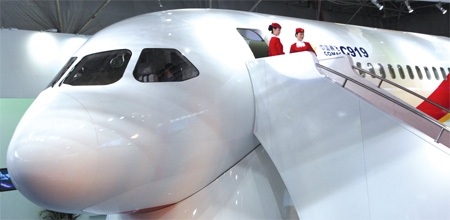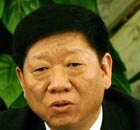Indian Bureaucracy a legacy of British Colonialism
Updated: 2010-11-08 10:51
By Binod Singh (chinadaily.com.cn)
India still practices the so-called" rule of avoidance" practiced in the Qing dynasty of China which required that a bureaucrat will not work in a region where their family lived, or where members of their family were in office. Every three odd years they are transferred which was also practiced during the Qing Empire.
Each year India selects its civil servants through a rigorous examination conducted in three stages: mainly the preliminary exam, the main exam and final interview. Each stage is equally important and the whole examination process lasts for more than a year. One is always advised to check his self-confidence before taking this exam as it may land you in a state of frustration if not successful in the four attempts allowed before the age of 30 years.
Out of hundreds and thousands of candidates each year, only between 200 to 300 candidates are finally selected to be sent for two year training in a hill station located in north India. This is the reason that Indian bureaucracy is still not as huge as China. The country has one of the lowest numbers of per capita officers and it believes in the concept of small government.
The minimum qualification for the exam is to be an undergraduate. But many of the top bureaucrats have higher degrees including doctorates, which they yearn after taking leave from the services. Most of Indian bureaucrats are self-proclaimed intellectuals or even possess a PhD degree or MBA from abroad in what is now becoming a trend in China too. But Chinese bureaucrats are supposed to buy degrees and not supposed to yearn it. If you happen to encounter an Indian bureaucrat you can drag him for a coffee and he will deliver a lecture for hours.
Last year Lant Pritchett, a professor at the John F. Kennedy School of Government of Harvard University published a manuscript on the efficiency of Indian bureaucracy and exposed the reality of intellectual bureaucrats in New Delhi. He was there to work for the World Bank and found the pathetic situation of the implementation of government policies planned at the Lutyens Delhi. He rightly decided to put a title to his report as "Is India a Flailing State? Detours on the Four Lane Highway to Modernization." His paper concluded that India has all the best policies and welfare major but it exists only on paper.
However I must remind here that what many believe that 'India has failed itself when it comes to governance and it is the private sector and NGOs who are running the show' are wrong. Some people do exaggerate the situation because of their frustration from the system. It is true that some middle class people may get stuck in the system and may not get the work done in time. But things are improving fast and people are becoming conscious of their rights.
There have been some honest officers who can run the one man show and things get moving. As the recent example of the Commonwealth Games in India displayed that despite various concerns the country did display an impressive show to the world.
Another successful example was the construction of Delhi Metro under the leadership of Mr. E. Sreedharan. who was figured in the TIME magazine for his excellence management of the Metro Project. New Delhi today boasts a world class new international airport and also a beautiful well connected Metro rail transport.
Despite all the pros and cons of Indian bureaucracy today each young Indian keeps it as his first choice when he decides his career plan. Some even decline Harvard and MIT offers just to serve the nation. Each year, the topper of the Indian civil services examination becomes a national hero and inspiration for others. Then he gets married with the daughter of a politician and thus the nexus is complete.
The writer is a PhD scholar at Peking University and teaches at Beijing foreign Studies University. He can be contacted at binod@126.com
Paper's Digest

Chinese jet takes on Big 2
First large commercial plane set to ride on demand for aircraft as economy grows.
Super-CPU only for domestic eyes
Specials

Gaining ground
Doing business in china for westerners has come a long way, Peter batey says.

Safeguarding environment a priority
China continues to face mounting pressure to curb environmental degradation, despite progress in reducing pollution over the last five years, the environmental protection minister warned.

Employment to remain a continuing challenge
China's top labor official said the country will face a tough employment situation in the next five years.
